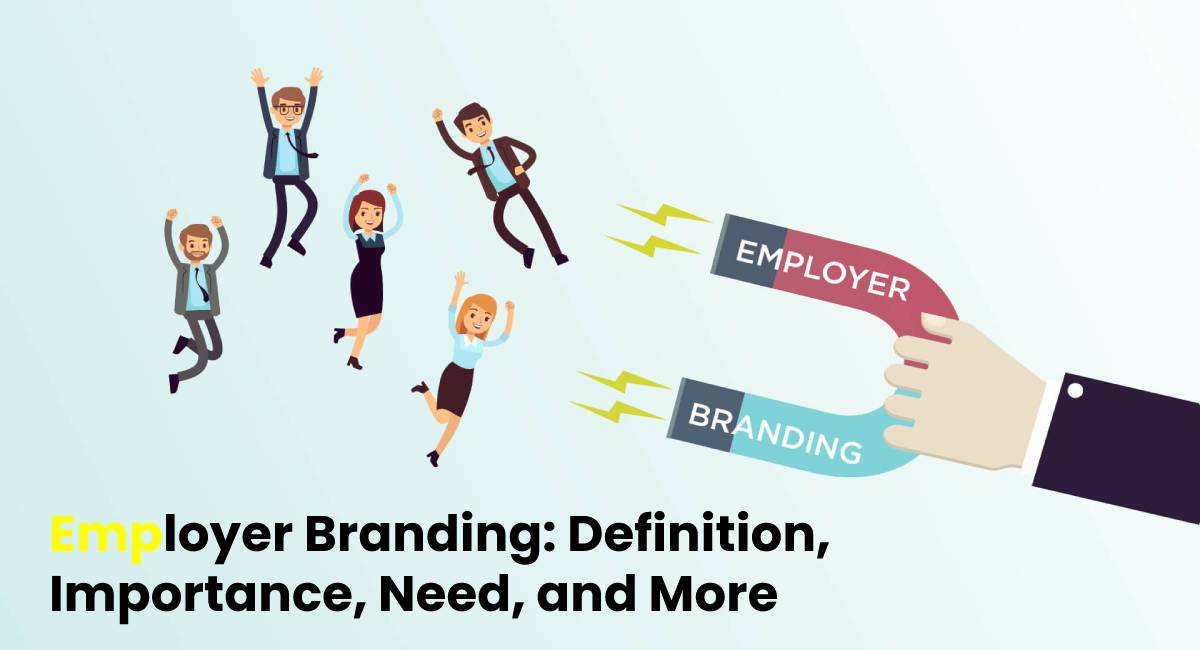What is the Employer Branding?
Employer branding is a new method progressive HR leaders are taking to battle for talent and engage and retain existing employees once and for all. Simply put, the employer brand connects the company’s goals, values, and mission to potential candidates, existing employees, and the employee value proposition (EVP).
Employer branding is essentially the personality of a company that includes, and perhaps most importantly, the details and nuances that distinguish it from other companies in the same industry.
The experience of working in a company that focuses on the employer’s brand is intentional and strategically oriented. To attract certain types of talent.
For example, the employer branding of a 30-member tech startup attracts a specific type of engineer. And also, by providing them with a culture in which they can perform best: natural light, open office design, table tennis, or other activities that enhance the business. They are working together and taking a nap.
Compare this approach to an asset management company whose culture gears towards attracting the ideal advisor and sending a strong message that the leadership treats them as clients. One of the main reasons consultants leave top companies is that top management sees the employee only as a source of income.
“Ultimately, culture may be the most important factor for some consultants. And they will be willing to accept less and overlook a higher salary package. To work for a company whose values align with theirs,” said Mindy Diamond. from Asset Management magazine.
Why is Employer Branding important in HR?
When natural, employer branding can be an excellent device for HR leaders to help:
- Increase the link
- Improve employee satisfaction
- Reduce the costs of acquisitions and acquisitions
- Manage reasonable hiring and retention costs.
Culture is the most critical part of the employer brand. Organizations that truly understand and respect the culture. In which their employees thrive can incorporate the necessary components of an effective employer branding strategy: behaviors, systems, and practices.
“A great culture emerges when all three align with the values that the company stands for,” says Melissa Daimler of Harvard Business Review. “When there are gaps, you see problems and great people leave.
How often do you hear someone you know accept a great offer for a growing business with incredible rewards and benefits, but three months later, the reality happens? The pink glasses are getting lighter; It was all a smoke and mirror trick to attract great talent.
Employees will no longer accept wool running down their eyes. You’ll leave the ship without batting an eyelid. And stay where you started, but with potentially significant damage to your reputation.
Employees want to be pleased with their workplace. They are demanding buyers and speak with their feet. When candidates visit your company’s career website, they want to see how the employee experience is displayed and amplified.
Why do you need an employer branding strategy?
If you want to be the best company and stand out above your competition, you must ensure that the best professionals are on your team. And one way to achieve this will be by creating a good employer brand.
Let’s see some of the benefits that, in addition to retaining and attracting talent, it promotes:
- Differentiation from the competition ;
- Reputation enhancement ;
- Increased visibility ;
- Communication with influential people involved in the success of future hires, such as schools or other companies;
- The attraction of new customers , reassured in their purchasing decisions by the ethical or eco-responsible image of the company, or internal gender equality, for example;
- Creation of company ambassadors.
Employees of the company, when they are satisfied, are proud to talk about it and become ambassadors of the employer brand. In addition, it should remain noted that employer branding transmits a positive corporate brand image. Which is beneficial to attract customers and future talents and create an excellent internal social climate and, therefore, retain employees.

